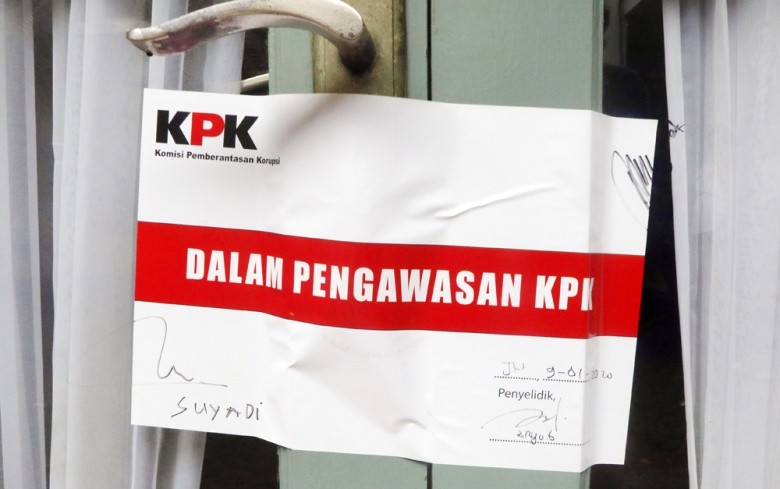Popular Reads
Top Results
Can't find what you're looking for?
View all search resultsPopular Reads
Top Results
Can't find what you're looking for?
View all search results'Maybe it's working': KPK says lack of raids thanks to successful prevention method
Since Firli Bahuri was inaugurated as KPK chairman in December last year, the antigraft body has only launched two operations: to arrest Sidoarjo regent Saiful Illah and KPU commisioner Wahyu Setiawan.
Change text size
Gift Premium Articles
to Anyone
Corruption Eradication Commission (KPK) chairman Firli Bahuri said the commission’s lack of raids against state officials suspected of corruption might be thanks to the antigraft body’s success in preventing the special crime across the country.
“Journalists asked me: ‘Why are there so few raids against corruption suspects?’ The answer is probably because our prevention method works,” Firli said on Wednesday as quoted by Antara news agency.
“We will hold an evaluation meeting later. However, it doesn’t mean we are not doing anything [to fight corruption].”
President Joko “Jokowi” Widodo inaugurated the three-star police general as KPK leader on Dec. 20 last year. Since then, the antigraft body has only launched two separate operations in January to arrest East Java’s Sidoarjo regent Saiful Illah and General Elections Commission (KPU) commissioner Wahyu Setiawan.
However, the investigation of both cases started during the tenure of previous chairman Agus Rahardjo.
Read also: KPK dumps cases as credibility slumps
Firli went on to say the KPK had three weapons in combating corruption: prevention, law enforcement and a combination of both. The KPK could implement preventive measures first, he said.
“Our experience in investigating various corruption cases, ranging from goods and services procurement to public services, can be used to coordinate with ministries,” said Firli.
He added he had visited several ministries, asking the ministers to map loopholes that could lead to corruption in their respective ministries.
Read also: Synergy with other state institutions a 'new soul' of antigraft body
The chairman emphasized that the KPK’s first duty was to prevent corruption as stipulated in the revised KPK Law. The regulation took effect in October last year after the House of Representatives passed a revised bill following speedy deliberation.
“Graft prevention could increase the government’s working performance. It will allow public services to work properly, and avoid high operational costs that lead to corruption.”
Firli said he would organize a national corruption prevention act on March 31, in which various institutions – state ministries and regional administrations – would compete against each other in establishing a good system to prevent graft. (dpk)










